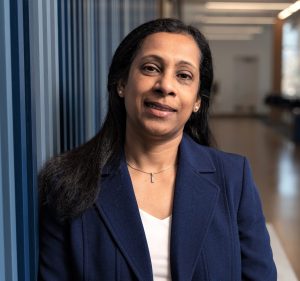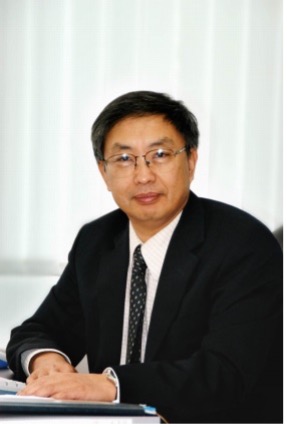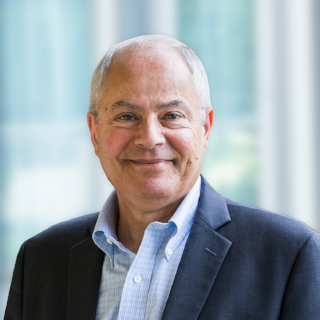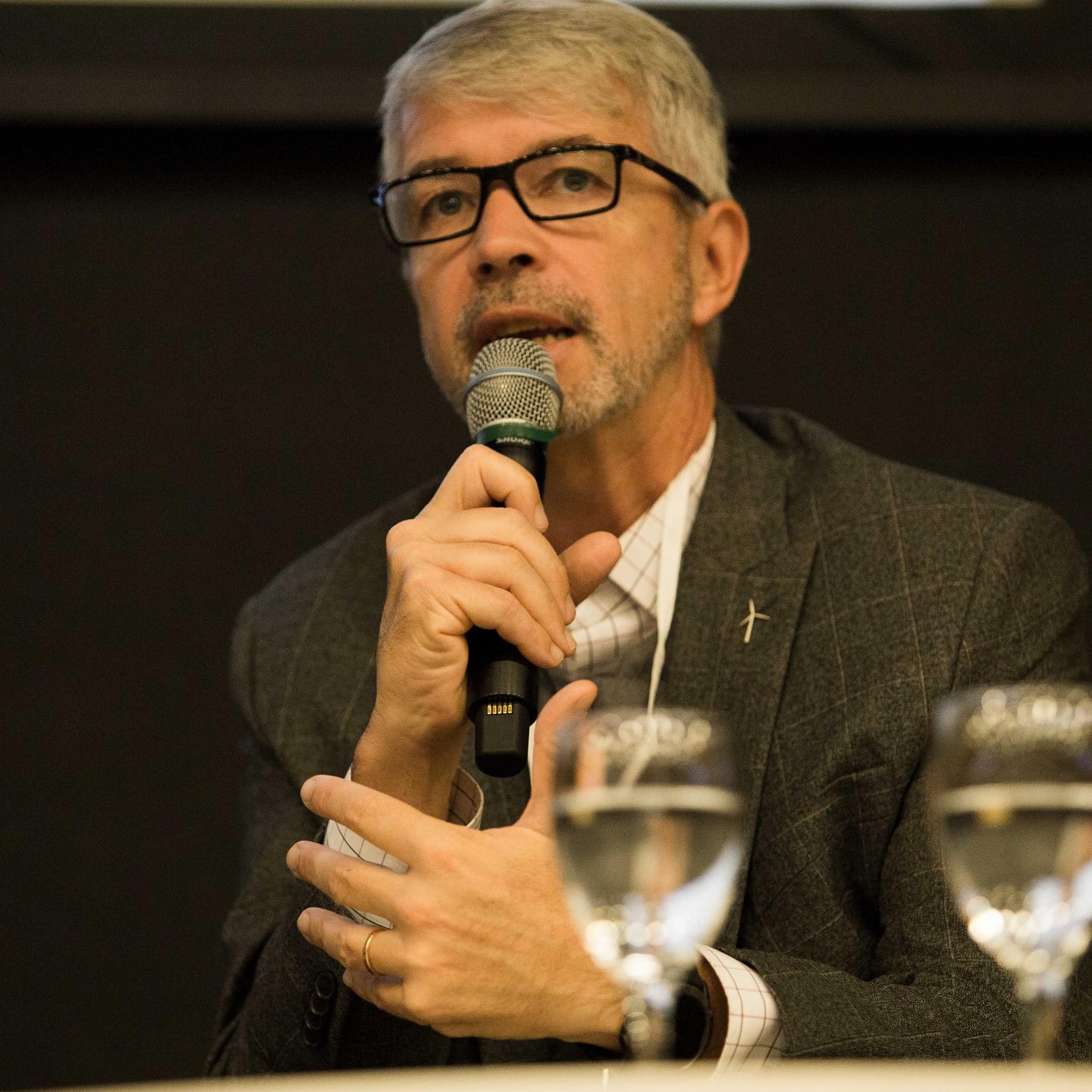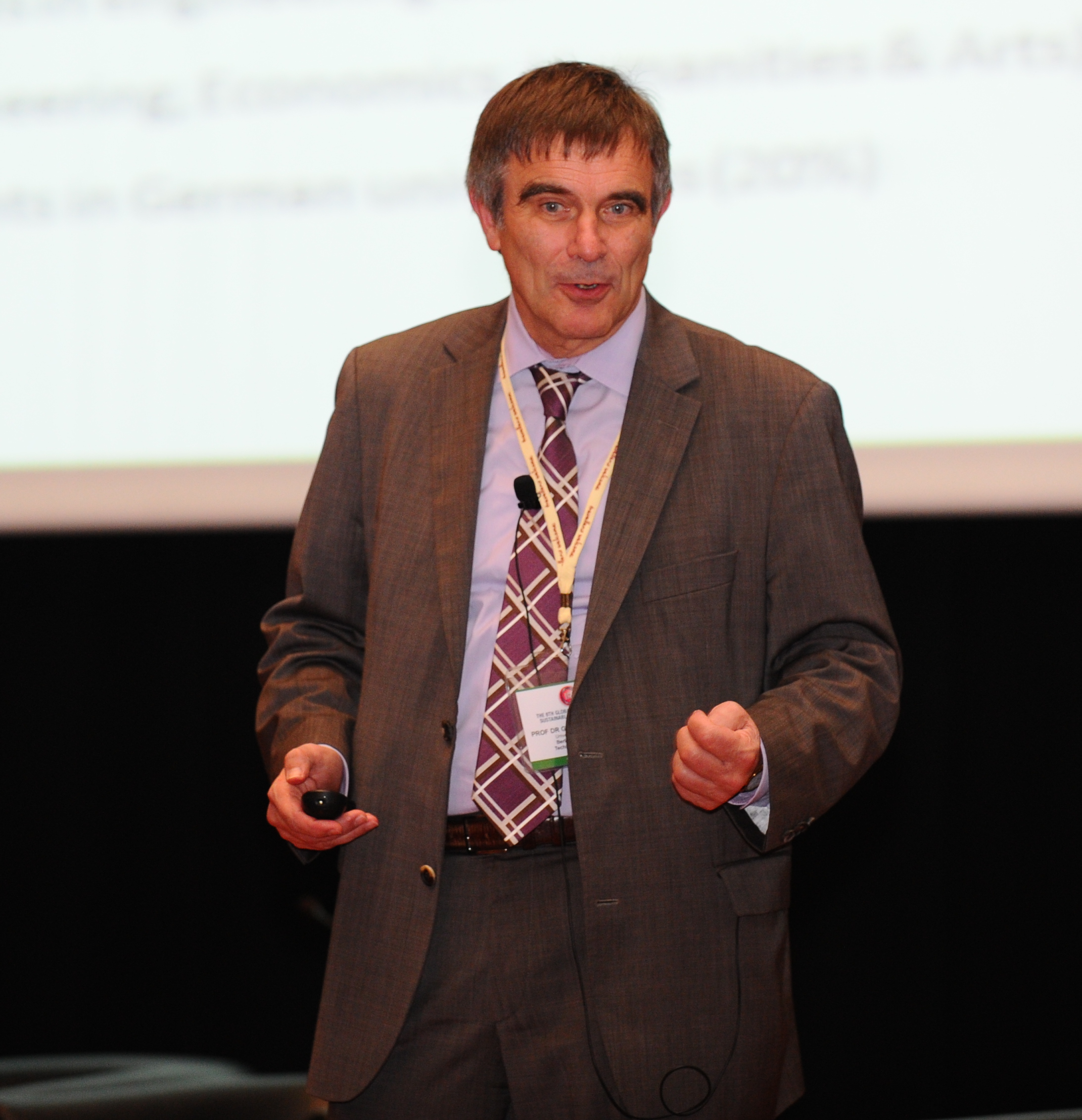Fazleena Badurdeen, Ph.D.
Earl Parker Robinson Chair Professor in Mechanical Engineering
Director, Manufacturing Systems Engineering
Institute for Sustainable Manufacturing
University of Kentucky
Lexington, KY, USA
Title:
Circular Product Design for Next Generation Manufacturing: Assessment Methods and Implementation Strategies
Restoration and regeneration are key pillars of the Circular Economy, aimed at minimizing the significant resources consumed and waste generated to meet the needs of a growing global population. While Circular Economy strategies are deployable at different levels from cities and regions to entire nations, enduring benefits and impactful transformations are not feasible unless implemented at the micro or product level. The design and deployment of products following Circular Economy principles is the nucleus for next generation manufacturing that will enable effective macro level Circular Economy transformations, paving the way for value creation for all stakeholders for long-term sustainable development. This presentation will critically examine the fundamental requirements for characterizing circularity at the product level. To operationalize circular product design, interventions are required at critical points across the product development process. Readiness or adaptability of product designs for circularity integration and symbiosis-driven collaborative practices for design and manufacturing can enhance capabilities for promoting product circularity. Industry 4.0 and related novel emerging technologies such as generative AI have the potential to offer superior capabilities for advancing next-generation circular product design and sustainable manufacturing. Novel, comprehensive and industry-relevant approaches for assessing product circularity are also vital to evaluate the effectiveness of the designs, manufacturing and their performance over the total lifecycle. This presentation will cover these aspects as well as international initiatives for standardization of principles for circular product design, to facilitate the widespread deployment of Circular Economy practices.
Bio:
Fazleena Badurdeen is the Earl Parker Robinson Chair Professor in Mechanical Engineering at the University of Kentucky (UK). She is the Director for both the Manufacturing Systems Engineering as well as the Supply Chain Engineering MS programs and a core faculty of UK’s Institute for Sustainable Manufacturing, an internationally recognized center of excellence focused on cutting-edge research and technology development for sustainable products, processes and systems. Dr. Badurdeen’s research interests are in sustainable and circular product design, measurement systems for circularity and sustainability evaluation, and modeling and analysis of manufacturing systems and supply chains. She has served as principal investigator (PI)/Co-PI for externally funded research in excess of $16 million and has published over 150 peer-reviewed papers. She is the founding Chair of the International Forum on Sustainable Manufacturing and serves as a Technical Vice President for the Institute of Industrial and Systems Engineers (IISE). She is also an Editor for the Resources, Conservation, and Recycling journal and serves on the editorial boards of a number of other journals. Dr. Badurdeen received her PhD in Integrated (Industrial and Mechanical) Engineering and MS in Industrial Engineering both from Ohio University, USA. She also holds an MBA from the Postgraduate Institute of Management, Sri Lanka and BS in Engineering from the University of Peradeniya, Sri Lanka.
Barbara Frei-Spreiter, Ph.D.
Executive Vice President, Industrial Automation
Member of the Executive Committee, Schneider Electric
Rueil-Malmaison, France
Title:
Sustainable manufacturing: the pivotal role of Industry 4.0 technologies
Advanced Manufacturing technologies and solutions play a crucial role to enable responsible, sustainable, and inclusive business transformation and growth. But: today less than 30% of industrial operations have successfully deployed a digital transformation program at scale. The potential for improvement is stunning.
Technology is available to realize the industries of the future -- but this transformation is also about people and management.
Bio:
Barbara leads Schneider Electric’s global Industrial Automation Business and has served on the company’s Executive Committee since 2019.
Barbara joined Schneider Electric in 2016 as Country President of Germany and expanded her scope to Zone President of DACH in 2017 (including Germany, Austria and Switzerland). In 2019, she was appointed Executive Vice President, Europe Operations and a member of the Executive Committee.
Barbara started her career as a development project manager for motors and drives at ABB Schweiz AG. She held various senior management positions in the ABB Group, including regional responsibility as Country Manager Czech Republic, Regional Manager for the Mediterranean in Italy, and leadership of the worldwide drives business.
Barbara holds a PhD in Electrical Machines from ETH Zurich, and an MBA from IMD Lausanne.
Ms. Mary Esther Ascheri
Dr.-Ing. Ulrike Beyer
Referenzfabrik.H2
Fraunhofer Institute for Machine Tools and Forming Technology,
Chemnitz, Germany
Title:
Joint Electrolyser Production as the Basis for a Hydrogen Bridge between South America and Germany
In the context of the demanding energy transition and decarbonization, hydrogen has gained prominence as a partner of green energy. However, a challenge persists concerning the fulfillment of ecologically sustainable hydrogen production, a difficulty that hinders the establishment of a hydrogen-centric economy worldwide. The central element is Electrolysers. These are systems that use green energy to separate water into hydrogen and oxygen. The task is as fast as possible to revolve around the establishment of an efficient and economic amplification of electrolyser manufacturing on a large scale.
The Referenzfabrik.H2 is actively addressing these challenges, deeply linked to the upscaling of electrolyser and hydrogen systems production, employing technologies and advancements development drawn from partners from industrial sectors and Fraunhofer IWU. Operating as a cooperative consortium, the Referenzfabrik.H2 functions as a value chain community of specialized companies from several action areas and expertise, thereby fostering an environment conducive to effective collaborative engagement and the reciprocal dissemination of knowledge related to the ramp-up production of electrolyser components in a large-scale aiming accelerated cost-efficient and scalable electrolyser production.
The Referenzfabrik.H2 wants to serve as a bridge between Germany and Argentina in the domain of green hydrogen. With Argentina's renewable energy potential, the Referenzfabrik.H2 can catalyze effective partnerships, accelerating Argentina's and Germany’s green hydrogen ambitions while contributing to global sustainability objectives.
Through joint efforts, the initiative attempts to develop streamlined manufacturing processes, innovative automation and quality assurance solutions, and standardized techniques, ultimately driving the transformation of the hydrogen industry towards competitive hydrogen production and its acceptance.
Bio:
Dr.-Ing. Dipl.-Wirtsch.-Ing. Ulrike Beyer, head of Referenzfabrik.H2 at the Fraunhofer Institute for Machine Tools and Forming Technology Chemnitz, is focused on coordinating and conceptualizing new production solutions for the mass production of hydrogen systems, specifically electrolyzers and fuel cells. Her objective is to support the energy transition by intensifying the topic of hydrogen in terms of both climate policy and sustainable value creation. To advance this work, Dr. Beyer coordinates the National Action Plan for Fuel Cell Production, which is funded by the BmDV and joined competences of 20 Fraunhofer-Institutes. She is also responsible for managing the Reference Factory for High-Rate Electrolyser Production, as part of the BmBF lead project H2GIGA. In addition, she developed and launched two Hydrogen Tryout Area projects that support sustainable hydrogen-based energy supply in South Africa and Namibia.
Esther Ascheri holds a Master of Science in Hydroscience and Engineering from Technische Universität Dresden and studied Mechanical Engineering at the State University of Sao Paulo in Brazil. She has demonstrated expertise in international cooperation projects in Hydrogen Technology at Fraunhofer IWU. Esther played a key role in additive manufacturing research, optimizing processes, in her earlier career in Brazil, Germany, and the USA. Currently, she is the Head of the Hydrogen Tryout Group at Referenzfabrik.H2.
Prof. Luís Gonzaga Trabasso, Ph.D.
Chief Research Officer - SENAI Innovation Institute for Manufacturing Systems and Laser Processing - Joinville - Brazil.
Title:
Additive MaintenanceTM: a way forward to sustainable manufacturing
The conventional maintenance process takes various steps until a component is actually replaced by a new one either because a failure or end-of-life. Special attention must be given for the buildup of the inventory. A part must be manufactured, transported, stored …just in case it is needed. Contrariwise, additive maintenance is based upon the use of artificial intelligence for failure prediction and metal additive manufacturing (either Laser Direct Energy Deposition or Laser Power Bed Fusion) for supplying the maintenance parts on demand.
Bio:
Bachelor in Mechanical Engineering at São Paulo State University "Júlio de Mesquita Filho" - UNESP - (1982), Master in Aerospace Engineering at National Institute for Space Research - INPE - (1985), Ph.D. in Mechanical Engineering at Loughborough University, England (1991) and Post-Doctorate in Human Centered Systems at Linköping University, Sweden (2017). He is one of the founders of the Competence Center of Manufacturing at ITA (CCM / ITA), a research center that hosts strategic R&D projects with several industrial partners. Currently he is Full Professor at the Mechanical Engineering Department of the Aeronautics Institute of Technology - ITA, Chief Research Officer at SENAI Institute for Manufacturing Systems and Laser Processing and Pro-Rector of Research & Innovation at SENAI University Center - UniSENAi. His research interests are Integrated Product Development (IPD) and Mechatronics focused on Industrial Automation and Robotics.
Prof. Peihua Gu
President of International Institute for Innovative Design and Intelligent Manufacturing
Tianjin University
Zhejiang, China
Title:
Smart and Sustainable Manufacturing Review and Future Perspectives
Smart manufacturing also known as intelligent manufacturing has been recognized as the major driving force to transform manufacturing industry. The international collaboration on Intelligent Manufacturing Systems (IMS) was initiated by Japan with participation of US, Canada, Australia, and European partners in early 90s. Since Germany introduced Industry 4.0, artificial intelligence, digitalization, big data, cloud computing, internet of things and other related technologies have been supporting rapid development and deployment of smart manufacturing technologies. As the international communities have been experiencing the extreme weather conditions in recent years, the implementation of Paris Agreement has received significant attention from many countries. The international societies have realized that AI technologies and the carbon neutrality commitments will have profound impact on not only manufacturing industry, but also almost all other sectors of the society. This keynote lecture will provide a brief historical review of IMS, the current technological development and the future perspectives of smart manufacturing in low carbon and industrial metaverse era.
Bio:
Peihua Gu is currently President of International Institute for Innovative Design and Intelligent Manufacturing of Tianjin University in Zhejiang China, a Professor of Mechanical Engineering and Executive Director of Center for Emerging Engineering Education Research and Application, Tianjin University. He was Provost and Vice-President of Shantou University from 2005-2018. Prior to returning to China, he was Professor and Head of the Department of Mechanical and Manufacturing Engineering, the University of Calgary, Canada.
He was an elected Fellow of Canadian Academy of Engineering (2004) and Fellow of CIRP (2004). He was twice awarded Industrial Research and Design Chair by the Natural Science and Engineering Research Council of Canada (NSERC) and was Changjiang Scholar Chair Professor awarded by Ministry of Education of China. His main research contribution includes the establishment of Adaptable Design Method, invention of Multi-material and Multi-source Deposition Method and various techniques in intelligent manufacturing. He is an author and co-author of over 300 technical publications. He received a number of awards and recognitions and delivered a number of keynote and invited lectures.
Professor Gu served on NSERC of Canada and NSF of China and the Editorial Boards for over 10 Journals as well as other research and education organizations. He received his PhD from McMaster University, M.Eng. and B.Eng (Dip) from Tianjin University.
Prof. Michael Zwicky Hauschild
Professor at the Department of Environmental and Resource Engineering Quantitative Sustainability Assessment
Technical University of Denmark
Copenhagen, Denmark
Title:
Relative and absolute perspectives on sustainability in manufacturing
A sustainable development meets the needs of current generations without compromising the abilities of future generations to meet their own needs. Manufacturing plays a central role in helping us meet our needs for food, mobility, housing etc. But which needs are we talking about and how do we ensure that our production activities do not compromise the need fulfilment of future generations? Stability of the climate and ecosystems is an essential precondition for the functioning of our societies, but while we have seen continuous improvements in the eco-efficiency of our technology (delivered service per environmental impact) over the last decades, we have also seen increasing pressure on our environment, and irreversible changes seem imminent if we don’t change our ways. For manufacturing this means that we need to shift our focus from relative sustainability (the solutions we develop are more sustainable than what they replace) towards absolute sustainability (solutions that are sustainable – in absolute terms). For climate change the Paris agreement to strive for climate neutrality by 2050 is an example of an absolute boundary that defines environmental sustainability. But we are also in the middle of a deep biodiversity crisis that is caused by a range of other environmental impacts and also here manufacturing needs to orient itself towards technological developments that have the potential to meet the needs of present and future generations within the biophysical limits of our planet.
Bio:
Michael Z. Hauschild is professor in quantitative assessment of sustainability and leader of the Center for Absolute Sustainability at the Technical University of Denmark (DTU) where he has worked on the development of methods for sustainability assessment of products and technologies for more 30 years. He has an extensive experience in the development of metrics and indicators for sustainability, and served as chair on consecutive working groups under UNEP-SETAC Life Cycle Initiative developing the recommended scientific consensus model USEtox (www.usetox.org) for assessment of chemical impacts on health and environment. He has acted as a consultant to the European Commission, creating the groundwork for the ILCD Methodology, which is the Commission’s standard methodology for life cycle assessment of products and systems and in 2018 he received the SETAC Europe Edana Award for lifetime achievement in Life Cycle Assessment. He has authored or co-authored more than 260 peer reviewed scientific publications and a leading textbook on Life Cycle Assessment with more than 150 000 downloads..
Prof. Ibrahim S. Jawahir
Director, Institute for Sustainable Manufacturing (ISM), James F. Hardymon Chair in Manufacturing Systems, and Professor of Mechanical Engineering
University of Kentucky
Lexington, KY, USA
Title:
A Metrics-based Transformative Approach for Developing and Implementing Sustainable Additive Manufacturing
Additive manufacturing (AM) processes continue to offer unique functional capabilities for diverse applications in industry. In recent years, solid-state additive manufacturing (SSAM) technologies have emerged as an effective alternative to traditional Fusion-based additive manufacturing (FBAM) processes. In SSAM, the additive feedstock material undergoes processing at temperatures below its melting point, avoiding many of the inherent challenges associated with FBAM, including complex microstructure control, undesirable residual stresses, part distortion, build rate and volume limitations, etc. Therefore, SSAM provides an advanced processing route for multi-scale AM of functionally superior components composed of materials and dissimilar multi-materials systems. Furthermore, SSAM enables manufacturing of large components that would otherwise be manufactured by casting or forging (which are highly energy intensive and time-consuming costly processes), while providing repair opportunities for large-scale legacy components and structures (e.g., bridges) and revitalizing aging infrastructure.
Almost all FBAM processes continue to suffer poor energy/resource efficiency, increased waste generation, reduced reusability of materials, and inconsistent and undesirable sub-surface quality, thus demonstrating poor process sustainability and product quality. SSAM processes show significantly improved energy/resource efficiency with material reuse capabilities and offer consistent sub-surface quality for improved functional performance of manufactured components. Published work on sustainability enhancement in AM is limited as they focus on just one or two sustainability measures such as energy consumption and material reuse. A comprehensive methodology for evaluating the overall AM process sustainability is largely lacking, thus limiting the development of advanced, innovative, and sustainable AM processes.
This presentation will demonstrate the benefits of recently developed novel, metrics-based product/process sustainability evaluation approach for transforming the current AM processes into sustainable AM focusing on the two major additive manufacturing processes: (a) Additive Friction Stir Deposition (AFSD); and (b) Cold Spray AM (CSAM). These processes offer enhanced process sustainability through reduced energy consumption and material wastes, with more effective material utilization, while potentially utilizing scrap waste as material feedstock (offering a “waste-to-value” proposition), while significantly improving the additively manufactured product quality for enhanced functional performance. A comprehensive and quantitative analysis of sustainability performance in AM processes, and the resulting components’ quality and performance, would be expected to make a major contribution towards developing and implementing next generation sustainable additive manufacturing processes.
Bio:
Dr. I.S. Jawahir is the Founding Director of Institute for Sustainable Manufacturing, James F. Hardymon Chair in Manufacturing Systems, and Professor of Mechanical Engineering at the University of Kentucky. His current research includes predictive modeling and optimization of sustainable manufacturing processes and sustainable product design for circularity. His early pioneering work on sustainable manufacturing processes (dry, near-dry (also known as MQL), and cryogenic machining/processing of materials) is well-recognized worldwide.
He has published extensively with over 450 research publications, including 175+ journal papers; awarded with 5 U.S. patents; delivered 80 plenary/keynote presentations in major international conferences and over 160 invited presentations in 38 countries. He has received significant research funding (over $70M) from US federal agencies and from numerous industry groups. He has also directed/supervised the research of 26 postdoctoral researchers, 45 PhD and over 70 MS (thesis) graduates.
He is a Fellow of CIRP (International Academy for Production Engineering), ASME (American Society of Mechanical Engineers) and SME (Society of Manufacturing Engineers); Editor-in-Chief of International Journal of Sustainable Manufacturing; and Technical Editor of Journal of Machining Science and Technology. In 2005, he established the ASME’s Research Committee on Sustainable Products and Processes and served as the Founding Chairman for six years (2005-11). He has been active in international collaborative research through CIRP since 1990: He founded the CIRP Conference Series on Modeling of Machining Operations in 1998; He led five CIRP research groups: (1) Chip control in machining, 1990-93; (2) Modeling of machining operations, 1995-2001; (3) Surface integrity in manufacturing processes, 2007-11; (4) Cryogenic manufacturing processes, 2012-16; and (5) Integrated Machining Performance for the Assessment of Cutting Tools (IMPACT), 2021-24. He also co-founded the CIRP Conference Series on Surface Integrity in 2012; and continues to play a major role in the Global Conference on Sustainable Manufacturing (GCSM) series since its founding in 2004. The current CIRP’s IMPACT Cooperative Research Group, led by Professor Jawahir, has over 55 researchers from 34 major research labs in universities, manufacturing industry groups and national/federal research labs in 18 countries. During the last three decades, Professor Jawahir has also established active international collaboration with 28 universities from 20 countries. Numerous publications were produced from these collaborations, and international conferences were jointly organized and hosted in the US and other countries.
Professor Jawahir received numerous awards and honors, including the 2013 ASME Milton C. Shaw Manufacturing Research Medal, 2015 William Johnson International Gold Medal, 2022 SME Frederick W. Taylor Research Medal and the 2023 ASME Kos Ishii – Toshiba Award. In 2017, he was awarded with a University Research Professorship at the University of Kentucky. Also, he was awarded the 2015 Distinguished Visiting Professorship by the Royal Academy of Engineering, United Kingdom.
Prof. Nabil Nasr
Associate Provost for Academic Affairs & Director, Golisano Institute for Sustainability
Rochester Institute of Technology
CEO of the REMADE Institute
Rochester, NY, USA
Title:
Accelerating the Transition to Circular Economy Through Transformational Technologies
In response to growing material demands, recovery, recycling, and remanufacturing present promising areas that can significantly address those challenges. There is a need to address those challenges at a global as well as national and regional levels with clear goals and objectives. In the US, the REMADE Institute was formed as a public/private partnership focused on developing transformational technologies to accelerate the transition to a Circular Economy for materials such as; plastics, metals, fibers and e-waste. The institute is funded through the US Department of Energy with $140 Million in public and private funding for the first 5 years. This presentation will provide an overview of the REMADE Institute and its technology strategy. The presentation will also highlight advancement in the circular economy that could significantly reduce the embodied energy, emissions, and waste and increase material availability associated with industrial-scale materials production and processing. Eliminate and/or mitigate technical and economic barriers that prevent greater material recycling, recovery, remanufacturing, & reuse.
Bio:
Dr. Nabil Nasr is the founding Chief Executive Officer of the REMADE Institute, where he oversees everything from node-level research roadmap development to corporate engagement of the Institute’s largest industrial partners. Dr. Nasr also serves as the Director of the Golisano Institute for Sustainability and an Associate Provost for Academic Affairs at the Rochester Institute of Technology. Throughout his career, Dr. Nasr has worked in the fields of sustainable manufacturing, remanufacturing, clean production, and sustainable product development for over 25 years, and is considered an international leader in research and development efforts in those disciplines. Dr. Nasr has served as an expert delegate for the U.S. government in several international forums, including the Asia Pacific Economic Cooperation (APEC), the United Nations, the World Trade Organization (WTO), and the Organisation for Economic Cooperation and Development (OECD). Dr. Nasr is also a member of the International Resource Panel (IRP) of the United Nations Environment Programme (UNEP). Dr. Nasr’s significant expertise in sustainable manufacturing leadership continues with his latest endeavor, the REMADE Insitute.
Dr. Nasr holds a BS in Industrial Engineering from Helwan University (Egypt), an MEng in Manufacturing Engineering from the Pennsylvania State University, and both an MS and PhD in Industrial & Systems Engineering from Rutgers University.
Mr. Patricio Neffa
Professor of Renewable Energy
Instituto Technológico de Buenos Aires
Buenos Aires, Argentina
Title:
Green Electrons and molecules for sustainable manufacturing: Energy Transition in the shop floor
The industrial sector has been a major contributor to global energy system CO2 emissions, accounting for a quarter of the total in 2022. The heavy reliance on fossil fuels in this sector has led to severe air-pollution health damage, climate change impacts, and energy security risks. This is particularly concerning in energy-intensive subsectors like cement, steel, chemicals, and paper pulp production.
Achieving a deep and rapid decarbonization of the industry is within reach but require huge transformations. Globally, there is a growing consensus that we must shift away from fossil fuel combustion, prioritize electrification of processes, and substantially increase the utilization of renewable energy sources such as wind, water, and solar, complemented by effective energy storage systems. Fortunately, most of these technologies are readily available in the market and are expected to become even more affordable over time.
This presentation aims to shed light on the current sources of energy utilized in the industry and explores various replacement technologies, emphasizing renewable energy and storage solutions. We will compare their merits and assess their potential to drive the transition towards sustainable manufacturing. Additionally, we will examine some transition highlights, including low-emission hydrogen and synthetic hydrocarbon fuels, as promising alternatives to conventional energy sources.
Despite the promise of a greener industrial sector, challenges lie ahead. We will analyze potential risks, such as social and political obstacles and issues related to raw material access. Nevertheless, we will also explore the numerous opportunities that exist, such as the implementation of supportive regulations, the advancement of clean energy technology manufacturing, the establishment of pilot plants, and other initiatives that foster innovation and collaboration.
Bio:
Patricio Neffa is an engineer from Nation l University of La Plata (UNLP-Argentina) with a master’s degree from Paris IX Dauphine in Organization and Project Management. Currently, he is professor of Renewable Energy at ITBA and Senior consultant.
Previously, he has occupied several key management positions in Genneia (IPP-Energy) and Renault-Nissan (automotive), both in Argentina and internationally (France, Russia & Brazil). Core competences encompass Innovation management, new product development, project management and operational efficiency of renewable energy assets.
Prof. Dr.-Ing. em. Günther Seliger
Professor emeritus, Institute of Machine Tools and Factory Management
Technische Universität Berlin
Berlin, Germany
Title:
Chances and Limits of Sustainable Manufacturing
Manufacturing is realizing useful processes and products for human life. Sustainable manufacturing is on production and logistics according to respective values in environmental, social, economic dimensions. The huge potential of manufacturing technology in exploiting sustainable human value creation is exemplarily demonstrated in the series of our Global Conferences on Sustainable Manufacturing. Adequate entrepreneurial development paths within the complex global and local arenas of human politically and economically powerful initiators offer chances for more utility with fewer resources. The doubtful character of human activities spoiling limited resources with irresponsible impact for human survival on globe becomes transparent by scenario-based education related to respective cases in societal arenas. Perspectives and cases within this framework of thoughts coin this contribution.
Bio:
Günther Seliger made his university education after school and service in the German navy in economics and mechanical engineering at the Technical University of Berlin (TU Berlin). In 1983 he obtained his PhD in industrial engineering with a thesis on “Economical Planning of Automated Production Systems”. From 1975 to 1988 he was research assistant and chief engineer for computer aided manufacturing at Production Technology Center (PTZ) of Institut für Werkzeugmaschinen und Fabrikbetrieb (IWF) TU Berlin and Fraunhofer Institut für Produktionsanlagen und Konstruktionstechnik (IPK) Berlin. Since 1988 to 2016 he was university professor for assembly technology and factory management at IWF TU Berlin. From 1995 to 2006 Prof. Seliger was initiator and head of the Collaborative Research Center (Sonderforschungsbereich) on “Disassembly Factories Regaining Resources in Product and Material Cycles”, from 2012 to 2015 he initiated and led his second Collaborative Research Center on “Sustainable Manufacturing – Shaping Global Value Creation” each supported by the German National Science Foundation (DFG) and comprising annually 20 full-time research assistants, and 40 part-time master students supervised by eight tenured professors. In his academic career he has contributed to more than 500 scientific publications in conferences, specialized journals and books. More than 100 national and international dissertations have been completed under his supervision, over half of them within research projects of his own chair. From 1997 to 1999 he was Vice President of the TU Berlin. Since 1991 he is member of CIRP (International Academy for Production Engineering Science). Since 2009 he is member of acatech German Academy of Engineering. From 1998 to 2016 he was Dean of the international study program of Global Production Engineering (GPE) at TU Berlin. Since 2012 he is foreign Dean of the faculty of engineering at the Turkish-German University in Istanbul. From 1998 to 2003 he directed the program area of production management at the Institute for Management and Technology (IMT) Berlin. He is the founder of the annual CIRP sponsored Global Conference on Sustainable Manufacturing (GCSM) which is held since 2003.
Nigel Worsnop
Vice-President Marketing of Tenaris
Buenos Aires, Argentina
Title:
Approaches to Sustainability at Tenaris
The final Keynote will be given by Nigel Worsnop, Marketing Director at Tenaris, which is a industrial company with manufacturing steel pipes for the energy industry all around the world. With their particular focus on their operations in Latin America, they are focusing on the long-term perspectives and thus always have had embedded sustainability principles in their business processes. However, rising issues concerning the climate crisis especially force companies in the steel and energy sectors to reevaluate and adapt their sustainability strategies. Tenaris, as a company on the nexus of the steel and energy industries, is particularly challenged. In the keynote, these challenges will be addressed and participants of the GCSM are invited to join for a visit at Tenaris, meeting the President of Operations in Argentina, and learning firsthand how sustainability concepts are applied in the operations.

